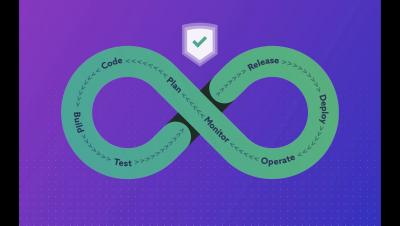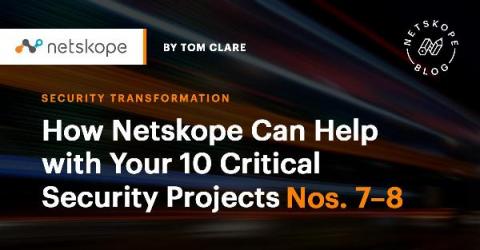Security | Threat Detection | Cyberattacks | DevSecOps | Compliance
Security
Java XML Security: How to prevent External Entity (XXE) Injection attacks
Runtime Threat Detection on AWS
How Netskope Can Help with Your 10 Critical Security Project - Nos. 7-8
The annual list of top security projects from Gartner provides key insights on where security leaders should focus their limited time and resources to be the most effective at protecting their data, users, and infrastructure. Netskope provides value for each of the top 10 recommended security projects for this year and next, including many critical capabilities. This blog series will highlight each Gartner recommendation and how Netskope specifically can help.
Veracode Named a Leader in The Forrester Wave: Static Application Security Testing, Q1 2021
If you’re looking to start or optimize an AppSec program in 2021, the Forrester WaveTM report is a good place to begin your research. The report not only details essential elements of AppSec solutions, but also ranks 12 static application security testing (SAST) vendors based on their current offering, strategy, and market presence. Development speeds and methods are changing and the requirements for a SAST solution are evolving as well.
Be The Master of Your Encryption Keys
Over the past decade, we’ve seen a massive shift towards relying on cloud technologies for everything we do, from watching TV shows and movies to sharing photos. Organizations have done the same. To increase efficiency and availability, they have moved their data and workloads to the cloud. But in a world of expanding threats, it has become necessary to implement additional layers of security for cloud data, applications and services to ensure privacy remains a top priority.
More Lessons Learned About Trying Harder and Passing the Offensive Security Certified Professional Exam (OSCP)
On February 11, 2020, Offensive Security introduced a major overhaul and update to their already fantastic course: Penetration Testing with Kali Linux. Those changes included updates to their lab environment. The study materials were substantially updated, with additional material including entire new sections on Bash Scripting, Active Directory Attacks, and PowerShell Empire.
How is Data Stored in Confluence?
Confluence is one of Atlassian’s most popular collaboration tools, a team workspace where users can create, capture, and coordinate on a variety of project types. Confluence’s role as a hub for sharing documents and creating templates means that, for many organizations, some of their most confidential data may live within their Confluence spaces.











